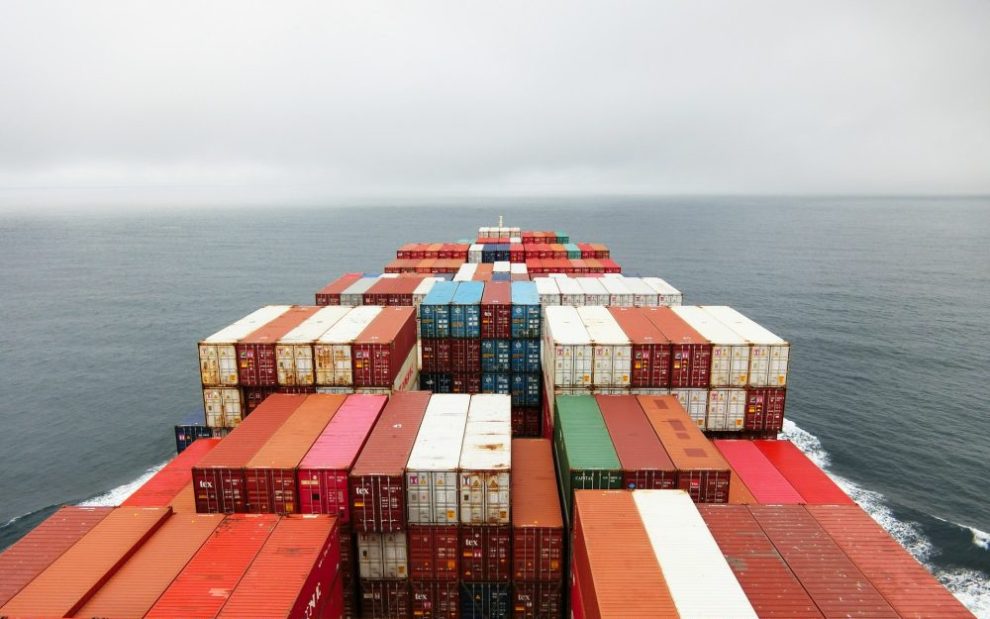Toilet paper was the first product that seemed to disappear overnight as the COVID-19 pandemic took hold back in March 2020. Other paper products soon followed, then cleaning supplies, meats, and more. Panicked market runs soon led to gouging, hoarding, and finally restrictions at points of sale as supermarkets attempted to keep products on their shelves and most consumers, if not happy, then at least not raging at blameless checkout clerks.
What many of us believed would be a short-term problem related to pandemic labor dislocations or production site shutdowns has in recent weeks come to look like a long-term problem that could mean regular shortages of consumer goods most of us had long taken for granted. In September store shelves again began emptying. Shipping costs from Asia were up more than four-fold since January, and container ships were rocking in the waves off of Long Beach, California, unable to deliver cargo during a perfect storm of pandemic shutdowns, commodity and fuel spikes, and bruising labor shortages. The global supply chain was floundering.
That means this Christmas season American consumers may get a small taste of what is commonplace in much of the rest of the world: scarcity. Of course, the U.S. variant will not share the same level of drama as folks struggling to stave off hunger, but a Washington Post report gravely warned that U.S. consumers face “the likelihood that they will not be able to obtain precisely what they want precisely when they want it.”
That makes us sound awfully spoiled. We are.
Pope Francis has used the expression “throwaway society” to criticize a wide breadth of practices in contemporary life that offend human dignity. It works fine as a broad metaphor, but let’s not forget its literal implications as well. Americans have proved unable to be shamed by profligacy. We remain in happy ignorance of the conditions of the working people who produce all those goods now bobbing in the ocean off of Long Beach; we embrace “fast fashion”—cheaply made and quickly disposed of clothing—and accept without outrage that almost 40 percent of food ends in dumpsters or rotting in our fields while the world goes hungry.
These are not just issues of personal ethics; they are matters of life and death. Maybe the supply chain breakdown could teach U.S. consumers not just a little patience but a lesson in how to get by with less?
“Build back better” has been a hopeful mantra invoked by political leaders all over the world from Joe Biden to Pope Francis as the West contemplates its faltering recovery from the global pandemic. The exhortation intended to encourage us not to settle merely for a return to what had been accepted as normal in the antepandemic period, especially in education, health care, and family life. What could it mean to build our global supply chain back better?
The current breakdown is a predictable outcome of decades of poor investments in infrastructure, corporate addiction to “just in time” production strategies, the maltreatment of the working people who sustain the supply chain, and the ongoing malpractice in Washington on health care and immigration policy. U.S. consumers could celebrate this Christmas season in a spirit of shared scarcity, advocating for better pay for producers and deliverers, seeking out local artisans for longer lasting clothing, and gift alternatives that confront throwaway culture. They could even consider doing not more but something with less, foregoing that holiday gift indulgence for a gift donation that recognizes the plight of workers at the other end of the supply chain—the one too few of us think about except when we reach for an empty space in a market aisle.
This article also appears in the December 2021 issue of U.S. Catholic (Vol. 86, No. 12, page 42). Click here to subscribe to the magazine.
Image: Unsplash/Rinson Chory













Add comment